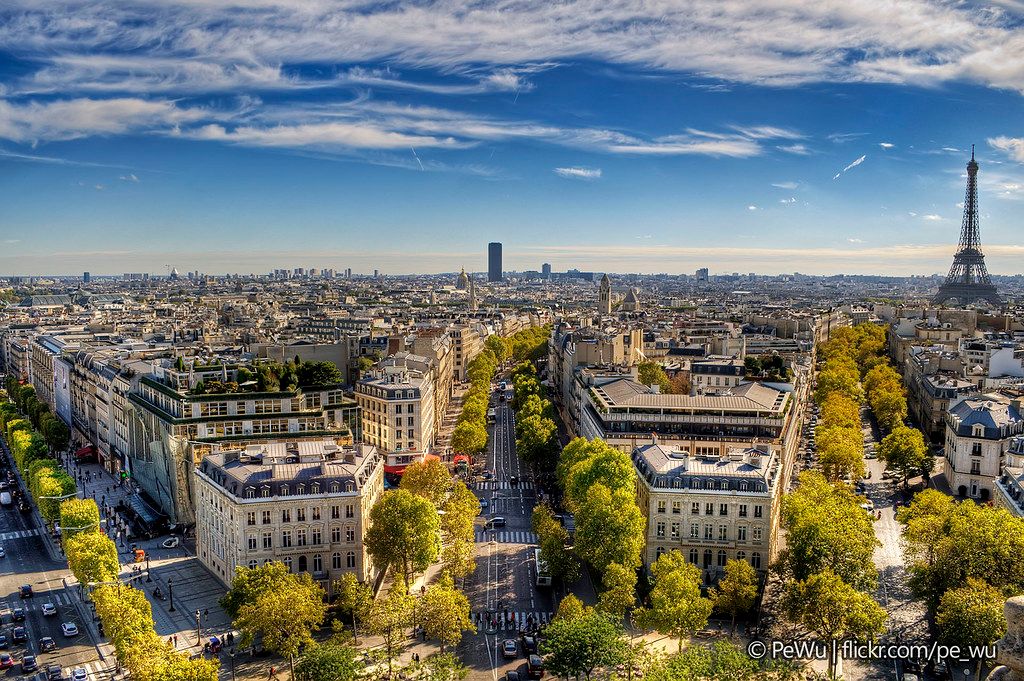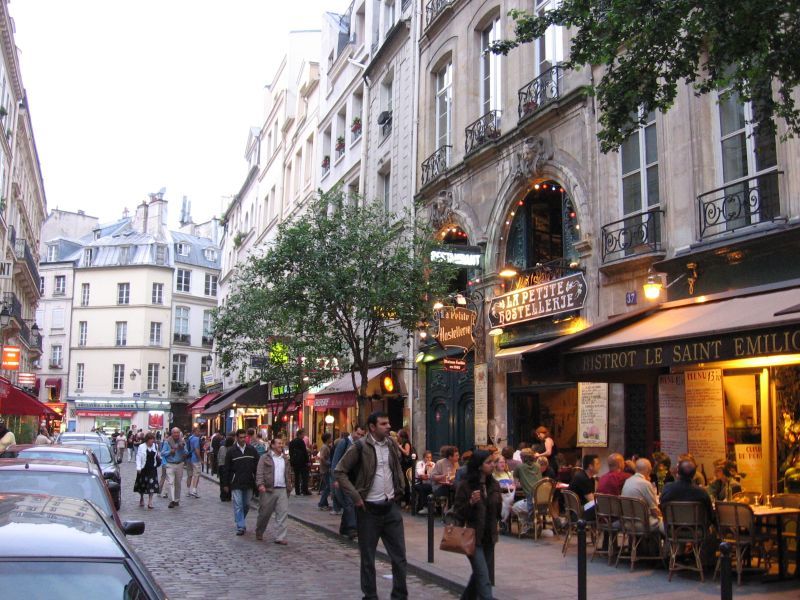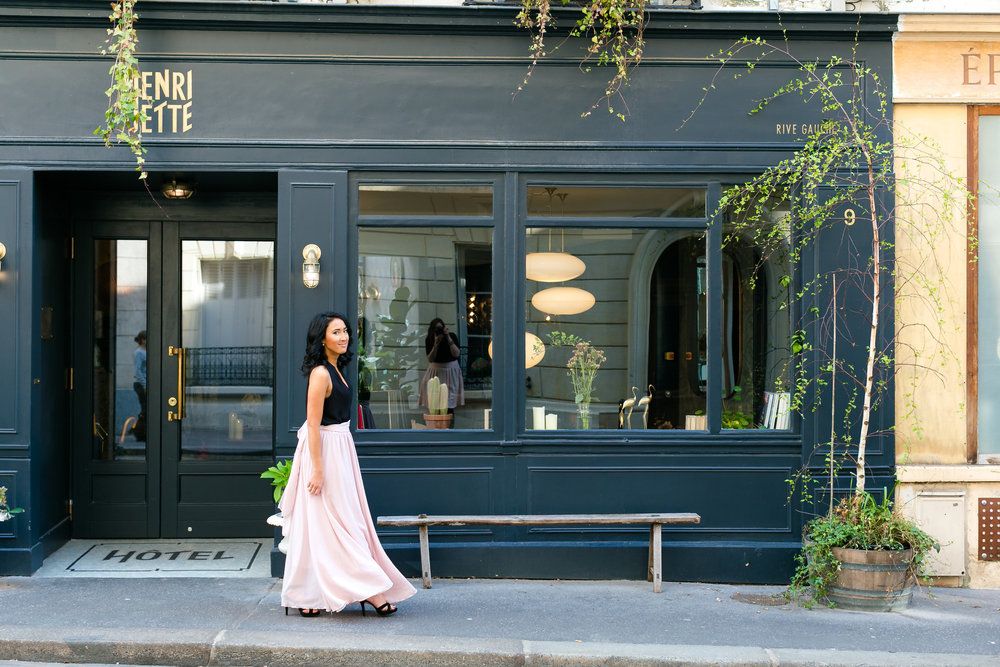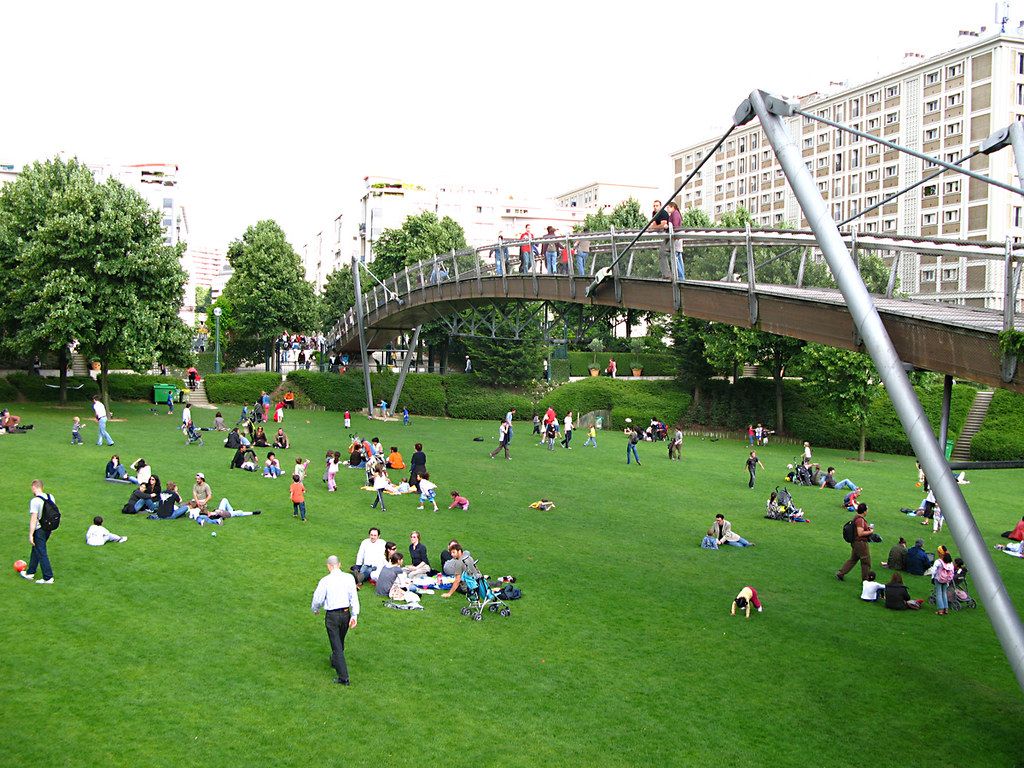CHAT
WITH US
WITH US
GET A
QUOTE
have questions? call us
+44 3330 907053

Moving Guides • Europe • 02 Oct 2024
Share this article
Embarking on a journey to make Paris your new home is an exhilarating prospect. The City of Light beckons with its rich history, stunning architecture, world-class cuisine, and unparalleled culture. However, moving from the familiar shores of the UK to the bustling streets of Paris requires careful planning and consideration.
At Deliver1 we’ve moved countless people to Paris, so below we will walk you through each step of the process, from navigating the maze of visa requirements to finding your perfect Parisian apartment and everything in between. Whether you're drawn by career opportunities, academic pursuits, or simply the allure of the Parisian lifestyle, this article will help make your move to France from the UK as smooth as possible.
The path to your Parisian dream begins with understanding and navigating the visa requirements. In the post-Brexit landscape, UK citizens find themselves in a new position when it comes to living and working in France. Gone are the days of free movement within the EU, replaced by a system that requires more paperwork but still offers ample opportunities for those determined to make Paris their home. From short-term stays to long-term residency, each situation has its own set of rules and requirements.
For those dipping their toes into Parisian life or perhaps scouting for a more permanent move, short-term stays offer a taste of the city without the need for extensive paperwork.
If your Parisian dreams extend beyond a three-month sojourn, you'll need to navigate the world of long-stay visas. These visas open the door to working, studying, or retiring in the City of Light.
The application process for long-stay visas involves several steps:
For the most current information on visa requirements and application processes, the France-Visas website is an invaluable resource. Remember, visa regulations can change, so it's always wise to check the latest requirements before planning your move.
Securing a place to call home in Paris is perhaps one of the most exciting – and potentially challenging – aspects of your move. The city's diverse neighbourhoods, or arrondissements, each offer their own unique charm and character. From the historic streets of Le Marais to the artistic enclave of Montmartre, or the trendy canal-side apartments of the 10th arrondissement, Paris has a neighbourhood to suit every taste and budget. However, the popularity of the city means that finding the perfect apartment can be competitive. Understanding the Parisian property market, knowing where to look, and being prepared with the right documents can make all the difference in your house-hunting journey.
Paris offers a variety of housing options, each with its own advantages and considerations:
Paris is divided into 20 arrondissements, each with its own distinct atmosphere:
Navigating the rental process in Paris requires patience and preparation:
Rental prices in Paris can be steep, especially in central and sought-after areas. As a rough guide:
These prices are generally higher than in most UK cities outside of central London. However, keep in mind that Paris apartments are often smaller than their UK counterparts, so you may need to adjust your expectations accordingly.
Finding your Parisian home may take time and effort, but the reward of waking up in your own corner of this beautiful city makes it all worthwhile. With persistence and the right approach, you'll soon be sipping your morning coffee in your very own Parisian apartment, ready to start your new life in the City of Light.

One of the many perks of living in France is access to its world-renowned healthcare system. Consistently ranked among the best globally, the French healthcare system offers high-quality care that's accessible to all residents. As you transition to life in Paris, understanding how to navigate this system will be crucial for your well-being and peace of mind. From registering with a local doctor to understanding the nuances of public and private insurance, getting to grips with healthcare in France will be an important step in your relocation journey.
Want to see how easy moving to France can be? Read about David's stress-free move with Deliver1.
Becoming part of the French healthcare system involves several steps, but the process is straightforward once you understand it:
The French system operates on a reimbursement model:
For UK citizens, it's important to understand the changes post-Brexit:
For detailed information on healthcare for UK nationals in France, the UK government's official guidance page is an excellent resource.
Understanding and accessing healthcare in Paris might seem daunting at first, but once you're in the system, you'll likely find it efficient and comprehensive. From routine check-ups to specialist care, you'll have access to some of the best medical professionals in the world, right on your doorstep in the City of Light.
Paris, a global hub for business, culture, and innovation, offers a diverse and dynamic job market for expats. Whether you're transferring with an international company, seeking new opportunities, or planning to start your own business, the city provides a wealth of possibilities across various sectors. However, navigating the French job market comes with its own set of challenges and rewards. Understanding the key industries, job search strategies, and work culture in Paris will be crucial in launching or continuing your career in this vibrant city.
Paris boasts a diverse economic landscape, with several sectors standing out:
To tap into the Parisian job market, consider these resources:
Understanding French work culture can help you integrate more smoothly:
While many international companies use English, proficiency in French is often required or highly advantageous:
Embarking on a career in Paris can be an exciting and rewarding experience. The city's diverse job market, combined with its high quality of life, makes it an attractive destination for professionals from around the world. Whether you're climbing the corporate ladder or carving out your own niche, Paris offers the backdrop for a fulfilling professional life. Remember, patience and persistence are key – finding the right opportunity may take time, but the rewards of working in one of the world's most beautiful cities are well worth the effort.

Paris, a city steeped in intellectual history and home to some of the world's most prestigious educational institutions, offers a rich and diverse learning environment. Whether you're moving with school-age children or planning to further your own education, understanding the French education system is crucial. From the rigorous academic traditions of French schools to the international outlook of bilingual and international institutions, Paris provides educational options to suit a variety of needs and aspirations.
The French education system is known for its structured approach and high academic standards:
French public schools are free and secular, providing a solid education based on the national curriculum. However, classes are typically conducted in French, which can be challenging for non-French speaking children initially.
For families preferring an English-language education or an international curriculum, Paris offers several excellent options:
These schools can ease the transition for expat children but often come with significant fees.
Paris is renowned for its world-class universities and grandes écoles:
Many institutions now offer courses in English, making higher education in Paris increasingly accessible to international students. The city also hosts numerous language schools for those looking to improve their French skills.
Paris offers numerous opportunities for lifelong learning:
For more information on the French education system, the Ministry of Education website is an excellent resource.
Whether you're enrolling your children in school, pursuing higher education, or simply looking to learn something new, Paris offers educational opportunities to suit every need and interest. The city's rich academic tradition, combined with its forward-looking approach to education, makes it an ideal place for learners of all ages. Embrace the educational offerings of Paris, and you'll find that the city itself becomes your classroom, with lessons in history, art, and culture around every corner.
Understanding the cost of living in Paris compared to what you're accustomed to in the UK is crucial for planning your move and managing your finances effectively. Paris, like many global cities, has a reputation for being expensive. However, the reality is more nuanced, with some aspects of life in the French capital potentially more affordable than you might expect, while others may require a bit more budget allocation. Let's break down the costs of living in Paris and compare them to those in the UK, particularly London, to give you a clearer picture of what to expect financially when you make the move.
Before we delve into specific costs, it's important to note some general trends:
To give you a more concrete idea, let's compare some specific costs between Paris and London:
Remember, these are average figures and can vary depending on lifestyle and specific location within each city. While some aspects of life in Paris may be more expensive, others may offer savings compared to London. The key is to budget carefully and adjust your expectations and spending habits accordingly.
Navigating a new city can be daunting, but Paris boasts one of the most comprehensive and efficient public transportation systems in the world. From the iconic metro to the extensive bus network, getting around the City of Light is an adventure in itself. Understanding the transportation options available will not only help you move around the city with ease but also allow you to explore the hidden gems of Paris that lie beyond the tourist hotspots. Let's dive into the various ways you can traverse this beautiful city, making your Parisian life both convenient and exciting.
Paris offers a variety of public transport options, each with its own charm and efficiency:
Understanding the ticketing system will save you time and money:
For more information and to plan your journeys, the RATP website is an invaluable resource.
While public transport is efficient, some may choose to drive:
Embracing Paris's public transportation system is not just about getting from A to B; it's part of the Parisian way of life. Whether you're commuting to work on the metro, taking a scenic bus ride along the Seine, or exploring the city on a Vélib' bike, you'll find that transportation in Paris is an integral part of your new adventure in the French capital.

Managing your finances in a new country can seem like a daunting task, but setting up your banking in Paris is a crucial step in establishing your new life. The French banking system is modern and efficient, offering a range of services to cater to different needs. From traditional high street banks to online-only options, you'll find a variety of choices to manage your money in the City of Light. Understanding the banking landscape, knowing how to open an account, and managing currency exchange will help you navigate your finances with confidence as you settle into Parisian life.
Setting up a French bank account (compte bancaire) is one of the first things you should do upon arrival:
To open a bank account, you'll typically need:
Popular banks in France include:
Consider online banks like N26 or Revolut for potentially easier setup processes, especially if you're comfortable with digital banking.
While France uses the Euro, you may need to exchange pounds initially:
Understanding your tax obligations is crucial:
For detailed tax information, the French tax administration website is an excellent resource.
Setting up your finances in Paris may take some time and patience, but once established, you'll find the French banking system efficient and user-friendly. From contactless payments in chic boutiques to managing your accounts online, you'll soon be handling your finances like a true Parisian.
Immersing yourself in the language and culture of Paris is perhaps one of the most rewarding aspects of moving to this iconic city. French isn't just a means of communication here; it's a gateway to understanding the Parisian way of life, from the subtle nuances of social etiquette to the rich tapestry of art, literature, and history that defines the city. While many Parisians speak English, especially in tourist areas and international businesses, embracing the French language and cultural norms will significantly enhance your experience and help you integrate into your new home.
While you can get by with English in many situations, learning French will open up a whole new world:
Understanding French customs can help you navigate social situations with ease:
Immerse yourself in Parisian culture:
Embracing the language and culture of Paris is a journey in itself. Each interaction, each cultural experience, will deepen your understanding and appreciation of your new home. Remember, learning a new language and adapting to a new culture takes time - be patient with yourself and enjoy the process of becoming a true Parisian.
The excitement of moving to Paris is often accompanied by a long to-do list. Proper preparation can make your transition to life in the French capital smoother and less stressful. From sorting out your documents to deciding what to pack, there's much to consider. But don't worry - with careful planning and organisation, you'll be ready to embark on your Parisian adventure in no time. Let's break down the key steps to prepare for your move, ensuring you start your new life in Paris on the right foot.
Use this comprehensive checklist to ensure you've covered all bases:
To make the process manageable, consider this timeline:
Remember, preparing for an international move can feel overwhelming at times, but tackle it step by step, and you'll be ready before you know it. Keep your eyes on the prize - soon you'll be starting your new life in one of the world's most beautiful cities!

Congratulations! You've made the move to Paris. Now comes the exciting part - settling into your new Parisian life. This period of adjustment can be both thrilling and challenging as you navigate your new surroundings, establish routines, and begin to feel at home in the City of Light. From setting up your new apartment to building a social network, there's much to do in these first weeks and months. But don't worry - with a positive attitude and a sense of adventure, you'll soon find yourself feeling like a true Parisian.
Start your Parisian life on the right foot by tackling these essential tasks:
One of the keys to feeling at home in a new city is building a social network:
It's normal to experience some culture shock as you adjust to life in a new country:
Keep expanding your knowledge and skills:
Moving to Paris from the UK is an exciting adventure that requires careful planning and preparation. By following this guide, you'll be well-equipped to handle the challenges and make the most of the opportunities that come with living in one of the world's most beautiful and culturally rich cities. When you’re ready, why not reach out to us at Deliver1 to relocate your belongings there quickly and carefully. We’d love to help make this as stress-free as possible.
Remember, every expat's journey is unique, so be prepared for unexpected twists and turns along the way. Embrace the experience, from your first croissant at a corner café to your hundredth stroll along the Seine. Be patient with yourself as you adjust to your new life, and don't be afraid to ask for help when you need it.
Before long, you might find yourself feeling like a true Parisian - discussing politics over espresso, picnicking in the shadow of the Eiffel Tower, and navigating the metro like a pro. Your new life in Paris awaits - full of beauty, culture, and endless possibilities.
Bonne chance et bienvenue à Paris!
We love hearing from you-so please get in touch with any questions or queries.
We love hearing from you-so please get in touch with any questions or queries.
Working hours
Mon - Sat: 08:00 - 17:00
Sun: Closed
Call
+44 3330 907053Location
Unit 3, Newyears Green Lane
Newyears Green
Uxbridge
UB9 6LX
United Kingdom
